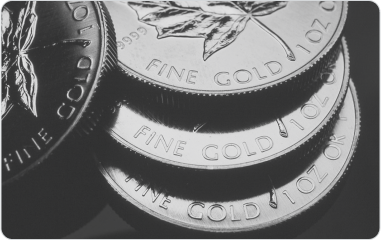
By Team BAC
We were also pretty surprised to see Costco doing $200M a month in gold bar sales.
Gold bars? Who the hell buys gold bars? And from Costco? But it makes sense. The US dollar is as valueless as it ever has been, the government shows no sign of slowing how much it borrows, and as incredible as AI technologies may be, the economy is not showing signs of boundless productivity right around the corner. That’s a recipe for the currency becoming an ever worse prospect for holding wealth.
In early 2014, an ounce of gold was quoted at about $1250. Today, in mid 2024, it’s about $2500. Doubling your money is nice, but there’s quite a lot that has performed better in stocks and certainly cryptocurrency. Gold doesn’t really seem like an ‘investment’. And it’s not, really. But as a store of wealth, as a way to keep one’s wealth in one’s possession, 2x is pretty great. But what happens when you buy gold? How do you get wealth back out of it? What do you do?
For a long time, there really haven’t been any good options. If you type “sell gold” into a search engine, you come back with a list of pawn shops, shady check cashing businesses, or “jewelers” which seem to deal exclusively in “Rolexes” (perhaps combinations of all three) in parts of your city that you would otherwise never visit. It doesn’t feel good going to these places. And it makes sense. For any serious person, money is numbers on a screen. It’s not cash under the mattress. It’s certainly not gold in a safe deposit box. But has that always been true?
Americans have a complicated relationship with gold. Their currency, the dollar, was from their founding through the 1930s, redeemable for gold and backed by gold. The crises of the Great Depression, the establishment of central banks, and a Federal confiscation and prohibition on even owning any gold from 1933 to 1974 meant that they - while having the world’s reserve currency via post-War international agreements - were unique in generally not having any of the stuff that actually once backed the currency itself. And yet, even though it treats the dollar as a fiat instrument, and even though Federal Reserve Notes are no longer redeemable for gold, the US government doesn’t itself give up its gold stocks at Fort Knox. Commodities markets trade in the metal, and contracts derivatives on gold claims make up a large portion of securities trading.
Gold that a person
actually owns was deleted from the American experience of wealth storage in 1933. But it doesn’t have to be that way. Since 1974, when the legal right was restored, ever more sophisticated banking structures and credit opportunities have been offered to Americans as a way to keep their money with custodians who also give them exciting ways to get into debt. Airline miles, gas points, mortgage lending and refinancing, car loans, and all kinds of cards. Banks do quite a lot to ensure that you keep your money with them, and mostly spend on credit.Does it have to be this way? We don’t think so. We think that if gold is financially legible, and liquidatable, and securely sealed, it can once again become a store of wealth for Americans. The BAC bar 1oz. is a strictly assayed, sealed, verifiable, and accountable unit of gold. It is wealth that you can stack, and wealth that you can store. You can convert it to cash nearly effortlessly. You do not have to make its location or ownership known to anyone. It is yours.
Sign up to be one of the first